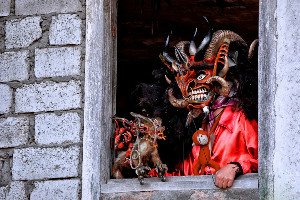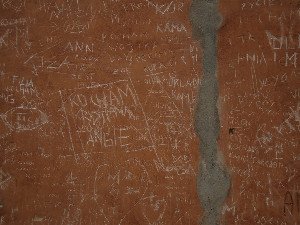Maria Gloria Roselli
Le collane degli Ainu nella raccolta di Fosco Maraini al Museo di Antropologia di Firenze
Introduction
Le collane degli ainu nella raccolta di fosco maraini al museo di antropologia di firenze. Scopri le collane tradizionali Ainu della collezione Fosco Maraini al Museo di Antropologia di Firenze. Studio unico della cultura indigena Ainu di Hokkaido.
Abstract
Twenty years after the death of the great Florentine traveller Fosco Maraini (1912-2004) the Museum of Anthropology and Ethnology of the University of Florence reordered the material of his 1939-41 collection among the Ainu of Hokkaido. It is one of the most exhaustive collections of Ainu objects and constitutes a rare testimony of the culture of this indigenous people who for long populated Hokkaido, but suffered greatly under colonial suppression. This article presents a study of the traditional necklaces, characterised by a peculiar style, worn by Ainu women. The study was based on a detailed analysis of the necklaces in the Museum's collection integrated with information from Fosco Maraini's autographic notes and related bibliographic materials.
Review
This article provides a timely and valuable re-examination of Fosco Maraini’s significant 1939-41 Ainu collection, housed at the Museum of Anthropology and Ethnology in Florence. Marking twenty years since Maraini's passing, the reordering of this material offers an opportune moment to revisit what is described as one of the most exhaustive collections of Ainu objects globally. The abstract effectively highlights the collection's crucial role as a rare testimony to an indigenous culture that faced severe colonial suppression, setting a compelling backdrop for the specific research presented. This broader contextualization underscores the importance of the collection not just as ethnographic artifacts, but as historical documents of a resilient, yet vulnerable, culture. The study zeroes in on the traditional necklaces worn by Ainu women, distinguished by their peculiar style. The methodology appears robust, relying on a detailed analysis of the necklaces within the museum's collection. Crucially, this empirical examination is enriched by the integration of Fosco Maraini’s autographic notes and related bibliographic materials. This multi-faceted approach, combining direct artifact study with the collector’s original insights and broader scholarly context, promises a nuanced and deeply informed understanding of these culturally significant adornments. Such a blend of primary and secondary sources is essential for interpreting historical collections accurately and for shedding light on the practices of the communities from which they originated. Overall, the article promises a significant contribution to Ainu studies, ethnography, and museum scholarship. By focusing on a specific class of objects—necklaces—within such a historically rich and comprehensive collection, the authors are poised to offer new insights into Ainu women's material culture, aesthetics, and potentially their social practices. The revisiting of Maraini's collection through this lens not only honors his legacy but also revitalizes the understanding of Ainu heritage, reminding us of the enduring value of historical ethnographic collections for contemporary scholarship. This work serves as an excellent example of how careful re-evaluation of existing archives can continue to yield profound cultural and historical knowledge.
Full Text
You need to be logged in to view the full text and Download file of this article - Le collane degli Ainu nella raccolta di Fosco Maraini al Museo di Antropologia di Firenze from Archivio per l'Antropologia e la Etnologia .
Login to View Full Text And DownloadComments
You need to be logged in to post a comment.
Top Blogs by Rating
Electro-Pulse: Unveiling the U...
By Sciaria
The Silent Language of Your Bo...
By Sciaria
Beyond the Forbidden: When His...
By Sciaria
Favorite Blog
Unmasking the Macabre: The Dar...
By Sciaria
The Geological Secret in Your...
By Sciaria
Whispers from the Walls: Unloc...
By Sciaria





